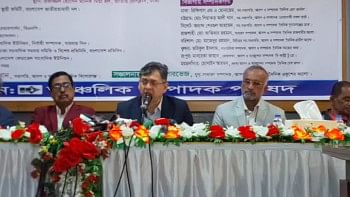Small, marginal farmers and Gabtoli cattle market

The Gabtoli cattle market is situated at Aminbazar. In the past, the area was a suburb of Dhaka but is now considered part of the city as Dhaka has expanded, stretching its boundaries. Gabtoli operates 24 hours a day, 7 days a week, and 365 days a year.
Gabtoli never sleeps!
The cattle and livestock market has several permanent sheds that are occupied by traders, known as beparis. These beparis sell their purchased cows to all types of customers, mainly to butchers (koshais), who are now branding themselves as "meat businessman".
The beparis and koshais have a love-hate relationship because they cut into each other's profit. However, some have friendly relations and credit sales by the beparis to the koshais are common affairs. Occasionally, these beparis will sell their cows to nearby well-established cattle-rearing farms.
The traders have their good days and bad. Overall, they survive and are financially sound. A few brokers hang out, most of the time staying inactive and springing to life during Eid-ul-Azha. They make a few quick bucks by creating chaos and confusion between the sellers and customers.

Ahead of the Eid-ul-Azha, Gabtoli constructs many temporary sheds to accommodate the influx of sellers. They come from all over the country. Among the seller are some new-generation of male and female, small and marginal livestock farmers (prantik khamaris).
These farmers have high hopes and set the initial asking prices similar to the prices set by the well-established cattle farms situated in and around Dhaka city.
As days pass, they are worried, lose hope, start panicking, and in desperation resort to distress sales. Finally, after fervent requests and intense bargaining, they sell their prized possessions at rock-bottom prices. While the farmers are in financial grief, the buyers are happy, and some gleefully decorate the cows with ornaments.
I recollect a young prantik khamari cried profusely and cursed the Dhaka residents because he was unable to sell his cow. He completely broke down when he realised that he will have to pay rent to Gabtoli for occupying the space even if the cow remains unsold. Another farmer quietly left the city after donating his cow to an orphanage.

The khamari-cows are no less (if not better) than the cows of the well-established cattle farms in terms of breed, colour, size, shape, and weight as evidenced in the recent cattle show held in Agargaon, Dhaka.
We need to help, support, and save the prantik khamaris from distressed sales.
The Department of Livestock through its vast network of field offices provides technical know-how, training, inputs, and medical support to the farmers. The department should take the imitativeness to tackle this distress-sale issue.
These actions will help the farmers receive fair prices for their cows and make Bangladesh self-sufficient in meat production.


 For all latest news, follow The Daily Star's Google News channel.
For all latest news, follow The Daily Star's Google News channel. 



Comments